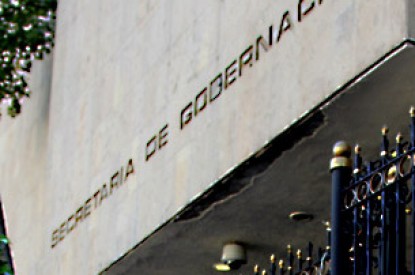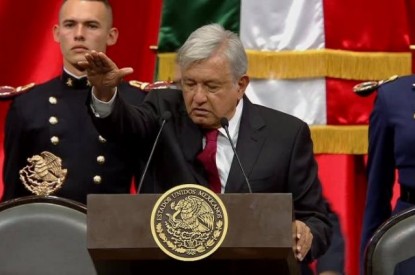Legislation
Mexico – Investigations into SEGOB continues
By Lewis - 16 September 2013
In the face of an increasingly chaotic gaming landscape, in April a powerful cross party committee was convened to look into the industry. Headed by Ricardo Mejía Berdeja its remit has been to investigate how licences were handed out in the past under the previous administration and to make recommendations as to how Mexico’s gaming laws could be changed in order to more fully regulate a sector which has seen a rapid proliferation in recent years.
The main impetus for change has come from charges that members of the regulatory body SEGOB (The Interior Ministry) were taking bribes in return for the granting of licences and stays of closure amongst growing evidence of wide spread corruption. But will the committee’s work really make a difference to Mexico’s gaming laws given the fact that change has been on the political agenda for well over ten years?
Casinos were first prohibited by President Lazaro Cardenas in 1936 and then permanently banned in the Betting and Raffles Law of 1947. However, in the spring of 2005 President Vicente Fox attempted to completely do away with the act and pave the way for a number of Las Vegas style casinos in tourist hotspots. However, lack of support for the bill in Congress meant that his administration rather than totally scrapping the old law could only add new legislation as an appendix to the old law.
While changes to the 1947 act did not give the go ahead for fully fledged land based casinos it did allow for sports betting shops, and bingo and slot parlours. It also granted the head of SEGOB the power to grant licences. The amendment immediately caused controversy as many members of the Chamber of Deputies claimed that the amendment went against the terms fixed in the original gaming act as was therefore unconstitutional. All the same the head of SEGOB immediately began granting licences and many of these licences allowed for large scale operations with in some cases of upwards of 300 slot machines on site along with sports betting and bingo. While the legality of these operations was initially in doubt their legal status was confirmed in 2007 when the Supreme Court upheld the constitutionality of Fox’s revised gaming law. Since then gaming has expanded rapidly. Although the present administration has not granted any more licences previous administrations have granted a total of 31 licences to companies which combined operate around 400 gaming centres throughout Mexico.
While the Fox administration has come closest to repealing the 1947 act there have been innumerable attempts to replace Mexico’s gaming laws with a law which would more accurately reflect the current gaming market. However, all attempts to overhaul the act have ultimately failed. This is despite growing evidence that urgent changes are needed to bring Mexico’s gaming laws up to date and in line with many other countries in the region which have passed wide sweeping gaming laws over recent years.
So while the investigative committee has been widely hailed as step in the right direction it has been hard not to remain a little sceptical when it comes to the question of whether its findings will actually have an impact on the industry long term. However, despite some misgivings and doubt, on this observer’s behalf at least, it looks increasingly that committee’s work could lead to real change.
First amongst the committee’s findings was the extent of illegal gaming in Mexico. According to experts which appeared before the committee there could be as many as 250,000 slot machines operating in Mexico along with 107 illegal casinos. In addition there could be at least a further 300 casinos in Mexico which remain open due to judicial stays of closures pointing to collusion when it comes to local judges and the gaming industry.
The committee has also been extremely thorough in its investigation into exactly how licences have been handed out in the past and has been working closely with Head of SEGOB, Miguel Angel Osorio Chong. The Minister has also agreed to assist and work closely with the committee in order to investigate those casinos which are operating illegally.
But perhaps most significant of all is that the committee has provided the impetus for a renewed push to change Mexico’s gaming laws. In August Miguel Angel Osorio Chong announced that he and SEGOB will work closely with the special investigative committee to analyse possible changes to Mexico’s gaming laws. In addition members of one of the most important political parties in Mexico the PRI party (The Institutional Revolutionary Party) are now planning to introduce new legislation which would do away with Mexico’s out-dated gaming laws. This was after a meeting between members of SEGOB and senators from the PRI party.
So it would seem that the time has finally arrived for a change to Mexico’s gaming laws. Although change could be slow what is certain is that the committee has been extremely thorough in its investigation and has become increasingly vociferous in its calls for a new gaming act. Although Mexico has seemed to be on the verge of enacting new legislation when it comes to gaming many times before there is increasing evidence to suggest that the committee’s work could well herald the beginning of a new era when it comes to Mexico’s gaming industry.



